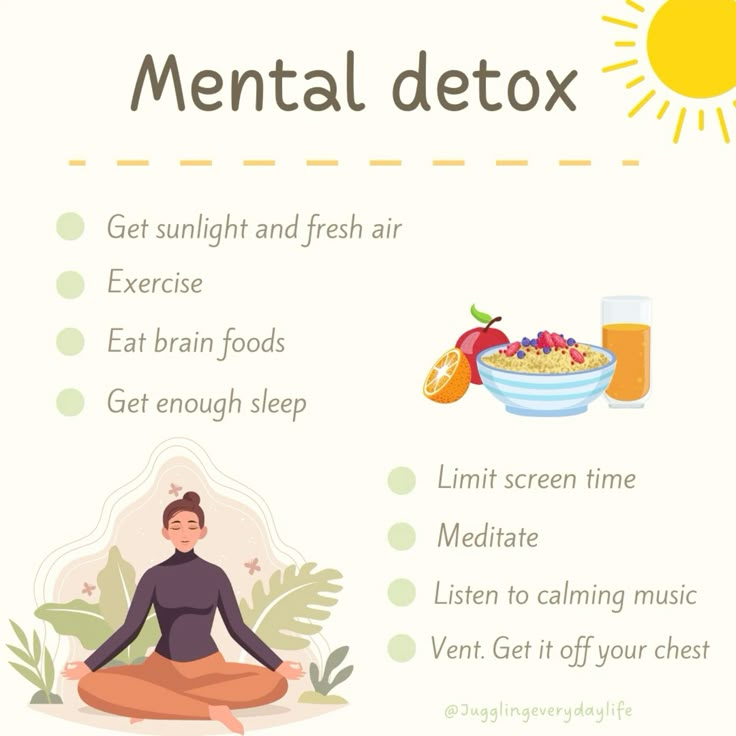Maintaining good mental health is not just about therapy sessions or self-help books—it’s about what you do every single day. Your daily habits, thoughts, routines, and actions all play a critical role in shaping your mental landscape. The good news? You don’t need a complete life overhaul to feel better. Small, consistent practices can help you build resilience, emotional strength, and mental clarity.
This blog explores daily routines that can dramatically enhance your mental wellness, reduce anxiety, and improve your overall outlook on life.

Why Mental Wellness Needs Daily Attention
Mental health isn’t a destination—it’s a journey that requires nurturing. Just like physical health, it thrives when supported daily. Stress, poor sleep, digital overload, and toxic self-talk can silently chip away at your peace. That’s why incorporating simple yet effective daily habits is essential to guard and grow your inner well-being.
These routines don’t require hours of effort. A few mindful minutes each day can make a lasting impact.
1. Start Your Day with a Mindful Morning Routine
How you begin your morning sets the tone for the rest of the day. Rather than jumping into social media or emails, take the first 15–30 minutes for yourself.
Try These Practices:
- Stretch or move your body: Gentle yoga or a short walk awakens your nervous system.
- Practice gratitude: Write down three things you’re thankful for.
- Set an intention: Choose a word or phrase to guide your mindset (e.g., “I choose calm” or “I will respond, not react”).
- Breathe deeply: Even 5 minutes of deep breathing or meditation can center your mind.
✅ SEO Tip: “Mindful morning routine for mental health” is a powerful keyword phrase.
2. Keep Your Body Active – Move Daily
There is a strong connection between physical activity and mental wellness. Regular exercise releases endorphins—natural mood lifters—and reduces cortisol, the stress hormone.
Activities That Support Mental Clarity:
- Walking or jogging in nature (boosts dopamine and lowers stress)
- Dancing or Zumba for fun and energy
- Strength training to build mental and physical resilience
- Yoga for mindfulness and emotional release
Even 20–30 minutes of activity can significantly impact your mood, sleep quality, and emotional balance.
3. Nourish Your Mind Through Healthy Eating
Your brain needs fuel to function at its best. A poor diet can lead to inflammation, brain fog, anxiety, and even depression.
Mental Health Nutrition Tips:
- Eat more omega-3s (found in walnuts, flaxseeds, fatty fish)
- Choose whole foods over processed items
- Drink plenty of water
- Avoid excessive sugar and caffeine, especially at night
- Include probiotic-rich foods for gut-brain health (yogurt, kefir, fermented veggies)
🧠 Fun Fact: The gut is often called the “second brain.” A healthy gut = a happier mind.
4. Practice Daily Digital Detoxing
Excessive screen time—especially social media—can cause overstimulation, self-comparison, and even anxiety. Constant scrolling disrupts sleep and weakens focus.
Daily Detox Tips:
- Keep your phone away for the first hour after waking
- Use screen time limits or app blockers
- Designate “tech-free” zones (like your dining table or bedroom)
- Replace screen time with real-time connection, reading, or hobbies
SEO Keyword: “Daily digital detox for mental wellness”
5. Journal Your Thoughts and Emotions
Writing is one of the most powerful tools to clear mental clutter and develop self-awareness.
Journaling Prompts:
- What am I feeling right now and why?
- What thoughts are on repeat in my mind today?
- What do I need to let go of?
- What brought me joy in the last 24 hours?
Journaling helps you recognize negative thought patterns and replace them with healthier perspectives. It can also boost problem-solving skills and emotional regulation.
6. Create a Sleep Ritual for Mental Restoration
Sleep is the body’s built-in mental reset button. Poor sleep increases anxiety, irritability, and emotional instability. Create a calming bedtime routine that signals your brain it’s time to wind down.
Sleep-Enhancing Habits:
- Limit screen exposure 1 hour before bed
- Sip calming teas like chamomile or ashwagandha
- Dim the lights and reduce noise
- Stick to a consistent sleep-wake schedule
🛌 Target keyword: “night routine for better mental health”
7. Focus on Single-Tasking and Mindfulness
Multitasking fragments your attention and increases stress. Practicing mindfulness and single-tasking helps you stay present and feel more in control.
How to Practice Mindfulness:
- Focus fully on one task at a time
- Notice your breath when you feel overwhelmed
- Eat slowly and savor each bite
- Pause to observe your surroundings without judgment
Even 5 minutes of mindfulness can improve emotional regulation and reduce impulsive reactions.
8. Speak Kindly to Yourself – Affirmations Work
Negative self-talk is one of the biggest enemies of mental wellness. Daily affirmations rewire your subconscious mind and build inner strength.
Examples of Daily Affirmations:
- “I am doing my best, and that is enough.”
- “I deserve peace, love, and happiness.”
- “I am capable of handling whatever comes my way.”
Say them aloud in front of a mirror or write them in your journal. It might feel awkward at first, but with repetition, your brain begins to believe them.
9. Connect Meaningfully with Others
Humans are wired for connection. Regular social interactions can reduce feelings of isolation and improve emotional stability.
Ways to Cultivate Connection:
- Call a friend or loved one every day
- Join a support group, community, or hobby club
- Share your thoughts honestly and openly
- Volunteer or help someone in need
Social support builds emotional resilience, especially during tough times.
10. End Your Day with Reflection and Gratitude
Just like you began your day with mindfulness, ending it on a reflective note helps clear mental fog and promotes restful sleep.
Nightly Mental Wellness Ritual:
- Reflect: What went well today?
- Release: What can I let go of?
- Reframe: What can I learn from today?
- Rest: Write 3 things you’re grateful for
This helps train your brain to focus on positivity and progress, rather than perfection.

The Power of Small Steps: Consistency Over Intensity
Don’t try to do everything at once. Mental wellness isn’t a checklist—it’s a daily lifestyle. Start with one or two practices that resonate most with you. Build slowly and consistently.
Weekly Tip:
- On Sundays, plan your mental wellness rituals for the week.
- Reflect on what worked and what didn’t.
- Stay compassionate with yourself through setbacks.
Real-Life Case Study: How Simple Habits Changed Riya’s Mental Health
Riya, a 29-year-old marketing professional, struggled with burnout, anxiety, and low self-esteem. She started small—waking up 15 minutes earlier to journal and doing a 10-minute yoga stretch before work.
Within 6 weeks, she:
- Reported fewer anxiety attacks
- Improved her sleep quality
- Felt more focused and emotionally calm at work
- Reconnected with her passion for painting
Riya didn’t go on a retreat. She didn’t quit her job. She simply created a safe inner space through small daily rituals—and that made all the difference.
Final Thoughts: You Deserve to Feel Well Every Day
Mental wellness isn’t reserved for the few. It’s a birthright. By building intentional daily routines that support your emotional and mental state, you empower yourself to handle life’s challenges with more grace and clarity.
Remember, your mind is like a garden. Tend to it every day—and watch yourself flourish.

FAQs
Q: How long does it take to see results from daily mental wellness routines?
A: You can start noticing small changes within a week, but deeper improvements usually take 21–66 days of consistent effort.
Q: Do I need a therapist if I follow these routines?
A: These habits support mental health but aren’t a substitute for professional help if you’re dealing with serious issues like trauma, depression, or anxiety disorders.
Q: What if I miss a day or fall off track?
A: That’s okay. Be kind to yourself. Progress is more important than perfection. Simply start again the next day.